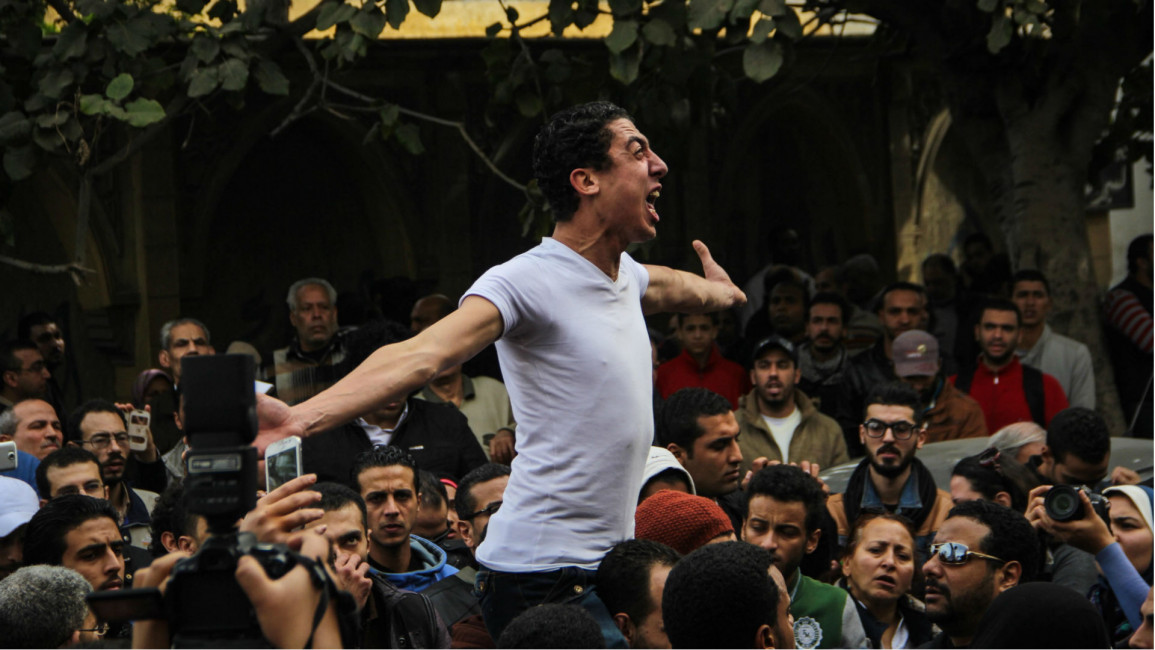
Where is the justice in Egypt?
Egypt began to discuss "transitional justice" after the 25 January revolution against Hosni Mubarak, as people sought to rebuild and reform the country. The current government created a ministry in its name. But so far, it has done nothing.
Transitional justice is the way through which countries have been able to overcome their conflicts and deep divisions and moved towards building inclusive democratic societies.
Perhaps the most prominent example of transitional justice is South Africa, which was overcame decades of apartheid through the process.
In simple terms, transitional justice is about ending the oppression and reversing the harm done to the oppressed if possible, in addition to compensating the victims of oppression.
It is about the acknowledgment of past crimes and seeking forgiveness. Transitional justice is about turning a new leaf based on tolerance, coexistence and mutual respect and committing to resolve difference through peaceful methods.
| Al-Araby special coverage: four years since the January 25 revolution. |
Violence only begets violence; therefore the only way to resolve conflict is for every party to make concessions in the interests of everyone, and begin again without oppression.
I was naive to be optimistic after 30 June 2013, when Egypt appointed Ibrahim el-Heneidy as minister of transitional justice. I was naive to think this would push the issue forward, right the wrongs committed and change the systems that allowed them.
However the ministry of transitional justice has nothing to do with its name and its minister has no knowledge or interest in transitional justice.
The ministry is not responsible for regaining public funds stolen under Hosni Mubarak's regime, nor is it responsible for uncovering crimes, or compensating victims.
| I was naive to be optimistic when Egypt appointed a minister of transitional justice. I was naive to think this would push the issue forward, right the wrongs and change the systems. |
The ministry's job is not to strive for a just system, or to stop oppression, or to achieve social cohesion. The minister does not care about any justice, let alone transitional justice.
The ministry's job is to propose legislation, much of which will be thrown in the bin by the president, Abdel Fattah al-Sisi. The only laws that will be adopted will ease trade regulations and resolve investment disputes.
The minister works in the "investment promotion authority", and does nothing for transitional justice.
He does not investigate allegations against the ministry of the interior. He meets diplomatic delegations and travels to Geneva to tell the world that everything is fine, there are no violations in Egyptian jails and no unjust trials or laws.
The minister supports corruption and defends it instead of doing his job and retrieving the billions of dollars that were stolen by Mubarak's regime.
He knows nothing about justice or transition. The minister of transitional justice, what are you doing here?
* Ahmed Maher was a prominent leader of protests against former president Mohamed Morsi in June 2013. He was later that year arrested and jailed for protesting againt Abdel Fattah al-Sisi's anti-demonstration laws.
This is an edited translation of the original Arabic.
Opinions expressed in this article remain those of the author and do not necessarily reflect those of al-Araby al-Jadeed, its editorial board or staff.





 Follow the Middle East's top stories in English at The New Arab on Google News
Follow the Middle East's top stories in English at The New Arab on Google News


